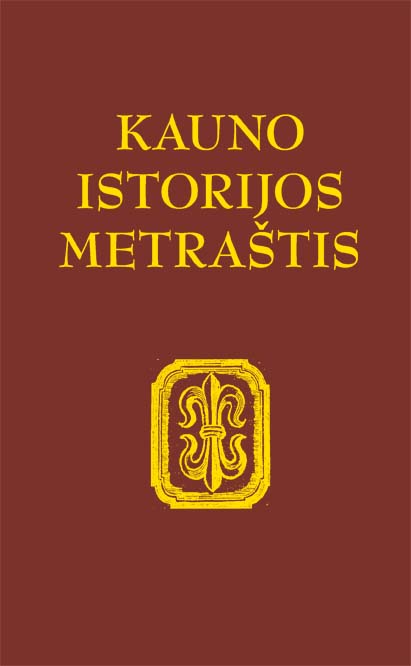Pacų giminės vedybinė politika ir žemėvalda XVI amžiaus Lietuvos Didžiojoje Kunigaikštystėje
The Marital Policy and Land Tenure of the Pacai (Pacowie) Family in the 16th Century in the Grand Duchy of Lithuania
Author(s): Andželika ŠčemeliovaSubject(s): Cultural history, 16th Century
Published by: Vytauto Didžiojo Universitetas
Keywords: The noble family of Pacai (Pacowie); Grand Duchy of Lithuania; Marital policy; Land tenure; Marriage;
Summary/Abstract: In the Grand Duchy of Lithuania (GDL) in the middle and second half of the 17th century, representatives of the noble family of Pacai (Pacowie) family were probably the richest and most influential people in the state. As a result, historiography has so far been more studied 17th century personal, genealogical, patronage, the cultural and political history of the Pacai family. So far, the reasons for the Pacs’ rise have not been studied in detail; they should be sought in the 16th century, when Pacai did not have the most important positions of the GDL in their hands. One of the reasons for the Pacai rise could be the family’s marriage strategy. Thanks to their successful marriage policy, the nobles were able to expand their land tenure and establish themselves in the political and public life of the state. Therefore, the object of this research is marriages of the Pacai family (4 generations, 13 persons) in the 16th century. In order to study the marriage policy of the Pacai family in the 16th century, marriage cases were analyzed by examining private documents of the Pacai family and data from genealogical directories, manuals and other historiographical researches. Marital policy became more apparent after finding out with whom Pacai most often entered into marriages. At the same time, the processes of land tenure and property concentration were followed. Evaluating the marriages concluded by Pacai, it can be stated that they achieved a twofold result – to strengthen the status of the family in state politics and to acquire property. In the first half of the 16th century, Pacai family members usually married representatives of families established in the Ruthenian lands of the Grand Duchy of Lithuania. In the second half of the 16th century, Pacai family members more often married daughters of the Samogitian elite. This strategy allowed them to occupy positions in the Ruthenian lands of the Grand Duchy of Lithuania and later in Samogitia. Pacai family marriage policy, on the other hand, was clearly aimed at increasing and concentrating land and other property. The desire to maintain land tenure in the family is also shown by the inherited property of Pacai family daughters, which had a monetary equivalent.
Journal: Kauno istorijos metraštis
- Issue Year: 2022
- Issue No: 20
- Page Range: 71-92
- Page Count: 22
- Language: Lithuanian

